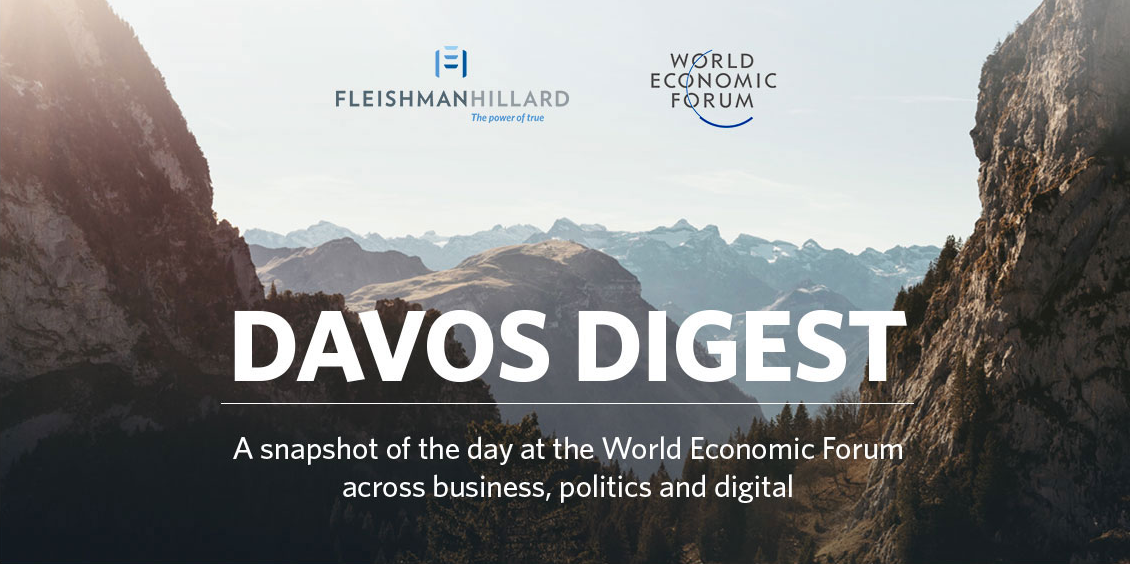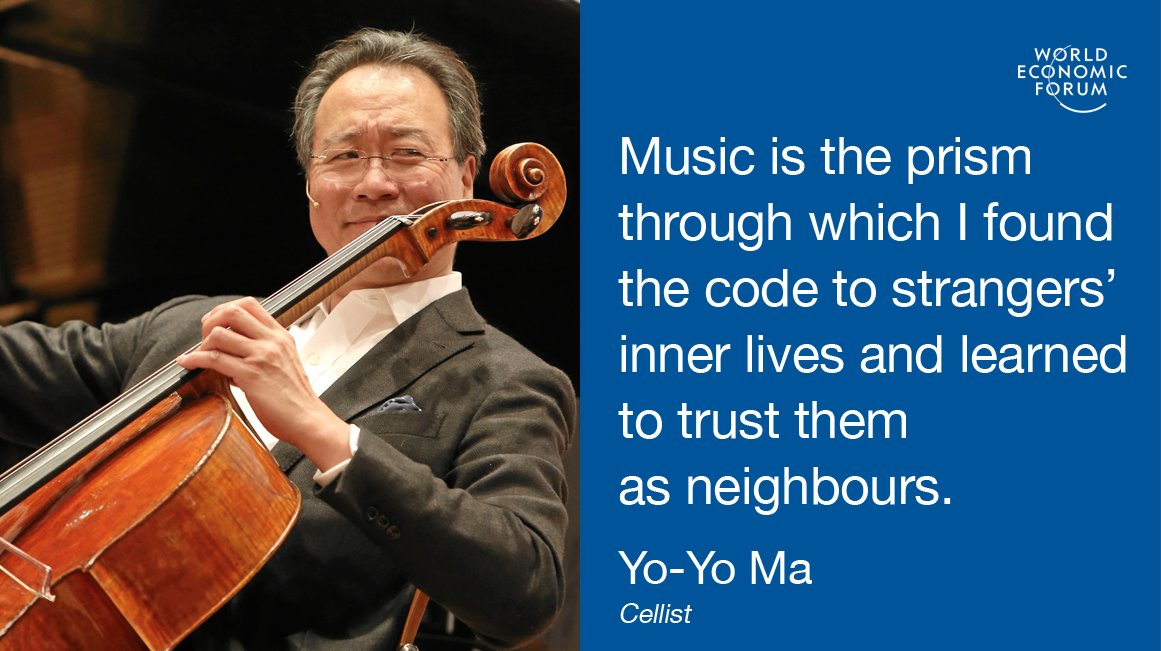Davos Digest 2018: Day Three

Day three of Davos, and the finishing line is on the horizon. Thursday’s WEF agenda covered some of the most pressing and influential topics to date, from international trade to interest rates, from bitcoin to that recurring theme of data governance.
However it was obvious that everyone at Davos had one eye on the front door, anticipating the arrival one man – President Donald Trump. With his aides speaking at the Forum in the days prior to his arrival, prepping the media and the Forum’s elite on his ‘America First’ agenda, his entrance marked a turning point at WEF.
With America now “WINNING!” again, how would Europe receive the leader of the world’s most powerful country?…

Trump, actually
- Our special relationship is still very special: When asked what his key message was at Davos, President Trump replied, “peace and prosperity”. And it’s been in this spirit of bridge-building that Trump has gone about his meetings with various world leaders, including UK Prime Minister Theresa May. “We love your country” he said, adding that he and May have a mutual feeling of “liking each other a lot”. That explains the hand-holding then. In addition, US Treasury Secretary Steven Mnuchin stated that the US was “very supportive” of the UK’s decision to leave the EU, and that the UK “would go to the front of the line” when it came to trade. Maybe it will be happily ever after, after all.
- Equality in Education: Noble Prize winner Malala Yousafzai has spoken of the importance of giving girls equal rights to education, and investing in the education of the next generation. Speaking as part of a panel discussion with Canadian Prime Minister Justin Trudeau, Malala called on Governments, businesses, NGOs and activists to come together to empower women through education.
- Healing Brexit wounds: UK Prime Minister Theresa May has addressed the congress, attempting to heal any open wounds caused by the painstaking Brexit negotiations. “Let’s renew our commitment to collaboration, and set ourselves on a path to benefit all our people”, she said, as well as dedicating much of her speech to the importance of government and business working together. In an interview at Davos, May referred to one of the hot topics of the summit – cryptocurrencies and bitcoin – saying that government needed to be looking at cyptocurrencies “very seriously”, particularly when it comes to the potential use by criminals.
Looking ahead in politics: On the final day of Davos, all eyes will turn again to Trump, where POTUS will make his special address at 14:00CET. He is largely expected to caveat his ‘America First’ policy with a Europe-friendly addendum that ‘this doesn’t mean America alone’.
What use is all this tech if you can’t operate it?
- You can’t spell Britain without “AI”: Despite the lovely weather, if there’s one other thing the UK has going for it right now it’s a strong Artificial Intelligence (AI) industry. Theresa May reminded Davos delegates that a new AI-startup has been created in the country every week for the last three years, laying the groundwork for investment opportunities and talent in a post-EU world.
- Computer says no: Salesforce CEO Marc Benioff was back on the agenda today, discussing AI as an opportunity to augment human capability, helping us make better informed decisions. A good use for this could be monitoring remote areas of the ocean under protection. However, news that an AI bot called Einstein is entrusted with input at Salesforce senior leadership meetings seemed to cause more of a stir.
- Hot Data: Data was once again at the front of the tech agenda today as Ginni Rometty, CEO of IBM, echoed Angela Merkel’s Davos remarks, regarding it as a new natural resource that must be guided by responsible stewardship. “These technologies are changing so rapidly, they need guiding into this world, or we’re not going to like where we end up… we must usher them in with purpose and transparency.”
- Skills for everyone!: WEF announced an initiative with digital technology partners TCS (FH client), SAP (FH client), Cisco, HP and more to provide digital skills training to one million people around the world. The movement will be done through a large, first-of-its kind, collaborative portal called SkillSET, and is being launched to help address the global IT skills gap.
Looking ahead in tech: Friday’s WEF agenda is toning down the tech. However we have a hard-hitting look at the Fourth Industrial Revolution’s impact on war, and a look at the possibilities of precision medicine.
Brexit, LEGO and a distinct lack of interest
- Heading for the shores!: JP Morgan issued fresh warnings that a “hard” Brexit deal may see more than 4,000 jobs moved out of the UK. In an interview at Davos, the bank’s Chief Executive Jamie Dimon stated that a potential move may be triggered if a Brexit deal “can’t find reciprocal recognition of rules”. Dimon also commented on how “there are a lot of people” who are after a ‘pound of flesh’ from the Brits for leaving the EU. Here’s hoping it doesn’t get too messy…
- All fun and games: On a lighter note, Unilever, the LEGO foundation, and IKEA have teamed up to persuade leaders about the importance of play for the healthy development of young children – particularly when it comes to developing work skills in the future. The Real Play Coalition was unveiled on Thursday, with a presentation featuring a toy set that once belonged to the original child genius, Albert Einstein.
- A lack of interest: The speech from the European Central Bank’s President, Mario Draghi, saw interest rates remain unchanged. Draghi also fared caution to the wind when it came to the strengthening of the Eurozone, commenting that it was too early to “declare victory.”
Looking ahead in business: The week ends with climate change still top of the agenda, with key financial figures – including Bank of England’s Mark Carney – discussing how climate change risks can be managed within economic planning. Moving east, we’ll see debated around Asia’s ‘fourth industrial revolution,’ with talks around how the continent will maintain its competitive edge.
Find Out More
-
Platinum CMS Award
March 13, 2024
-
Changing Communications Tack at Mobile World Congress
February 21, 2024


